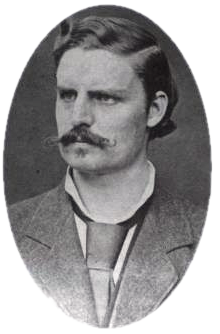| Revision as of 02:26, 20 April 2010 editSer Amantio di Nicolao (talk | contribs)Autopatrolled, Administrators6,266,792 editsm Adding category Category:German inventors (using HotCat)← Previous edit | Revision as of 04:30, 20 April 2010 edit undoCarcharoth (talk | contribs)Administrators73,578 edits add fatherNext edit → | ||
| Line 5: | Line 5: | ||
| In 1887 he constructed and fitted what was to be considered the first successful model of a contact lens: an ] ]l contact shell made from heavy brown glass, which he tested first on ]s, then on himself, and lastly on a small group of volunteers. His idea was advanced independently by several innovators in the years that followed. | In 1887 he constructed and fitted what was to be considered the first successful model of a contact lens: an ] ]l contact shell made from heavy brown glass, which he tested first on ]s, then on himself, and lastly on a small group of volunteers. His idea was advanced independently by several innovators in the years that followed. | ||
| He was the nephew of the German physiologist ]. | He was the nephew of the German physiologist ], and the son of the German anatomy professor ]. | ||
| ==External links and sources== | ==External links and sources== | ||
Revision as of 04:30, 20 April 2010

Adolf Gaston Eugen Fick (1852-1937) was a German ophthalmologist who invented the contact lens.
In 1887 he constructed and fitted what was to be considered the first successful model of a contact lens: an afocal scleral contact shell made from heavy brown glass, which he tested first on rabbits, then on himself, and lastly on a small group of volunteers. His idea was advanced independently by several innovators in the years that followed.
He was the nephew of the German physiologist Adolf Eugen Fick, and the son of the German anatomy professor Franz Ludwig Fick.
External links and sources
- Fick biography - The "Kontaktbrille" of Adolf Eugen Fick (1887)
- Fick biography - Contact Lens History , the overseas pioneers